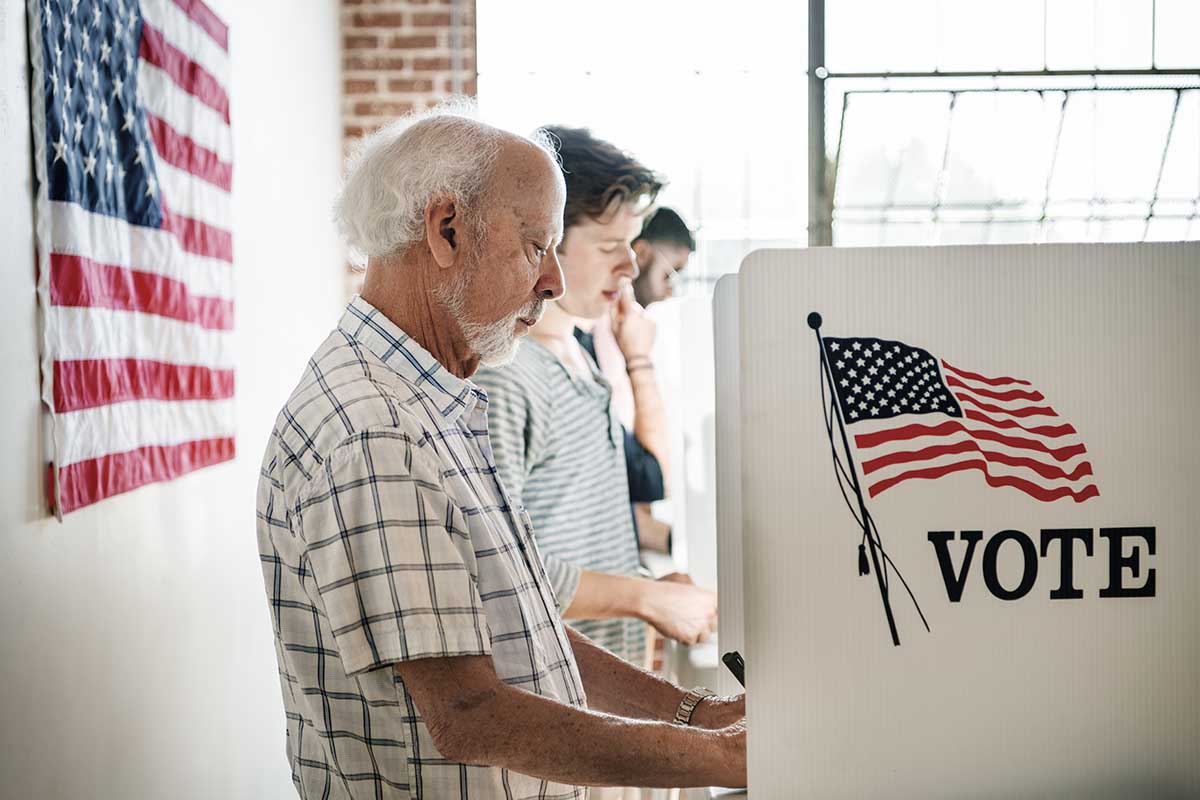7 Innovative Strategies For Voter Engagement In Modern Politics
Today’s political landscape has complex issues, deep divisions, and an ever-growing sense of apathy. Even in the most thrilling elections, voter engagement seems to decline steadily – with some states falling far below the national average for poll turnout rates. But there’s hope! Despite this troubling trend, new and innovative strategies are emerging to engage people in modern politics and empower them toward greater civic participation.
One such strategy is to hire a consulting firm for stakeholder analysis that undertakes a comprehensive stakeholder analysis to understand voter behavior, their needs, and expectations, thereby facilitating the development of targeted political campaigns and voter engagement strategies.
In this post, we’ll dive into innovative strategies for voter engagement in modern politics – from nonpartisan get-out-the-vote initiatives to impactful outreach campaigns that truly strive to make a difference by engaging citizens more deeply than ever.
So, whether you’re looking for effective campaigning tactics or want to learn how better voting can strengthen our democracy overall, keep reading to discover how these special approaches might help revolutionize your political outreach efforts!
Discuss The Importance Of Voter Engagement In Modern Politics
Voting is a foundational aspect of democracy, and citizens must engage in the political process. Voter engagement goes beyond simply casting a ballot during elections; it also entails participating in discussions, debates, and other activities that influence the political direction of a nation. In this modern era, it is more imperative than ever for citizens to engage in politics.
With advances in technology and social media, politicians have become more interconnected with the people they govern. This interconnectedness allows citizens to hold representatives accountable, ensure they adhere to principles, and make decisions that serve the public’s best interests.
Voter engagement is an essential part of this process. Through participation, citizens make their voices heard, hold politicians accountable, and ensure democracy functions properly.
Outline The Challenges Faced By Modern-Day Citizens When Engaging In Political Conversations
Political conversations have always been a staple of society, but in recent times, they have become unusually difficult. In the information age, people have unprecedented access to many news, opinions, and perspectives, making reaching a common consensus on various issues difficult. Moreover, social media platforms have further polarized the discourse, with people often retreating to echo chambers and dismissing opposing views without constructive engagement.
The growing political polarization and the dance of bias continuously manipulate citizens, and the need to “win” the argument has overshadowed the need for meaningful discourse. In this complex and diverse landscape, it is essential to recognize the challenges of political conversations and strive to engage in constructive debate.
Explain How Technology Can Help Bridge The Gap Between Citizens And Politicians
Technology has revolutionized communication over the last few decades and has impacted almost every aspect of our lives.
In this era of social media and instant messaging, it’s hard to ignore the power of technology to connect people from all corners of the world. Similarly, technology has significant potential to bridge the gap between citizens and politicians and create more transparency in governance.
By leveraging technology, citizens can now share their opinions, thoughts, and feedback with their elected representatives with just a few clicks.
Moreover, politicians can use social media, digital messaging, and other digital channels to broadcast their work, participate in debates, and engage with constituents, and vice versa. Technology can enhance the flow of information between politicians and citizens and thus contribute to an informed, inclusive, and participatory democracy.
Introduce Digital Activism As A Form Of Public Engagement
Innovative strategies for voter engagement have become more crucial than ever to ensure that every voice is heard. One strategy that has gained traction in recent years is digital activism. Digital activism involves using technology to mobilize and engage the public in political and social causes.
It could range from tweeting about a political issue to organizing online campaigns and petitions. Digital activism has the potential to reach millions of people instantly, making it a potent tool for political engagement.
By harnessing the power of technology, digital activism can change the political landscape and give a voice to those who may have previously been ignored.
List Innovative Ways To Engage Voters, Such As Virtual Town Hall Meetings, Social Media Campaigns, And Online Polls
When engaging voters, a stakeholder analysis is an essential first step. Look at who your voters are and where they spend their time. While traditional town hall meetings can be effective, virtual town hall meetings are becoming increasingly popular. Social media campaigns can also be a powerful tool, with millions of users active each day.
Creating unique hashtags and crafting shareable content can increase visibility and encourage engagement. Online polls are another innovative way to survey voters and get their opinions on key issues. By utilizing these innovative methods, political candidates can expand their reach and connect with voters where they are most active.
Highlight Successful Examples Of Voter Engagement Initiatives That Have Had a Real Impact
Despite the challenges of recent elections, there have been successful examples of voter engagement initiatives that have had a real impact. One is the city-wide voter registration drive conducted by the Chicago Urban League.
The organization provided resources for low-income and minority communities to register to vote, eventually resulting in a 50% increase in voter turnout compared to the previous election.
Similarly, the nonprofit organization Rock the Vote has significantly impacted young voter engagement. By hosting events and partnering with major artists and celebrities to encourage voter registration, they were able to triple the youth voter turnout in the 2018 midterms.
These initiatives demonstrate that even small-scale efforts can make a significant impact in increasing voter involvement and engagement.
Provide Practical Advice On How To Start A Voter Engagement Campaign In Your Community
Starting a voter engagement campaign in your community can be a great way to get involved and make a positive impact. However, conducting a stakeholder analysis is essential before diving in headfirst. It involves identifying key individuals and groups interested in your campaign, such as local leaders, community organizations, and potential voters.
You can tailor your messaging and outreach strategies to effectively engage with them by understanding their interests, needs, and concerns.
Additionally, reaching out to these stakeholders early on can help you build support for your campaign and create valuable partnerships that can help strengthen your efforts. So before you start pounding the pavement with your voter engagement campaign, take the time to conduct such analysis and lay the foundation for success.
Final Thoughts
To conclude, we have seen that voter engagement is essential for modern politics. While it can be challenging to engage citizens in conversations about politics, technology makes it easier than ever before. By harnessing digital activism strategies like virtual town halls, social media campaigns, and online polls, we can bridge the gap between citizens and politicians and create meaningful change.
We have witnessed countless successful examples of voter engagement initiatives that have had a real impact and provided a glimmer of hope to many. If you want to make a difference in your community, remember this: Start small but think big. Take the first step towards engaging with your fellow citizens because it all starts with one conversation!




















